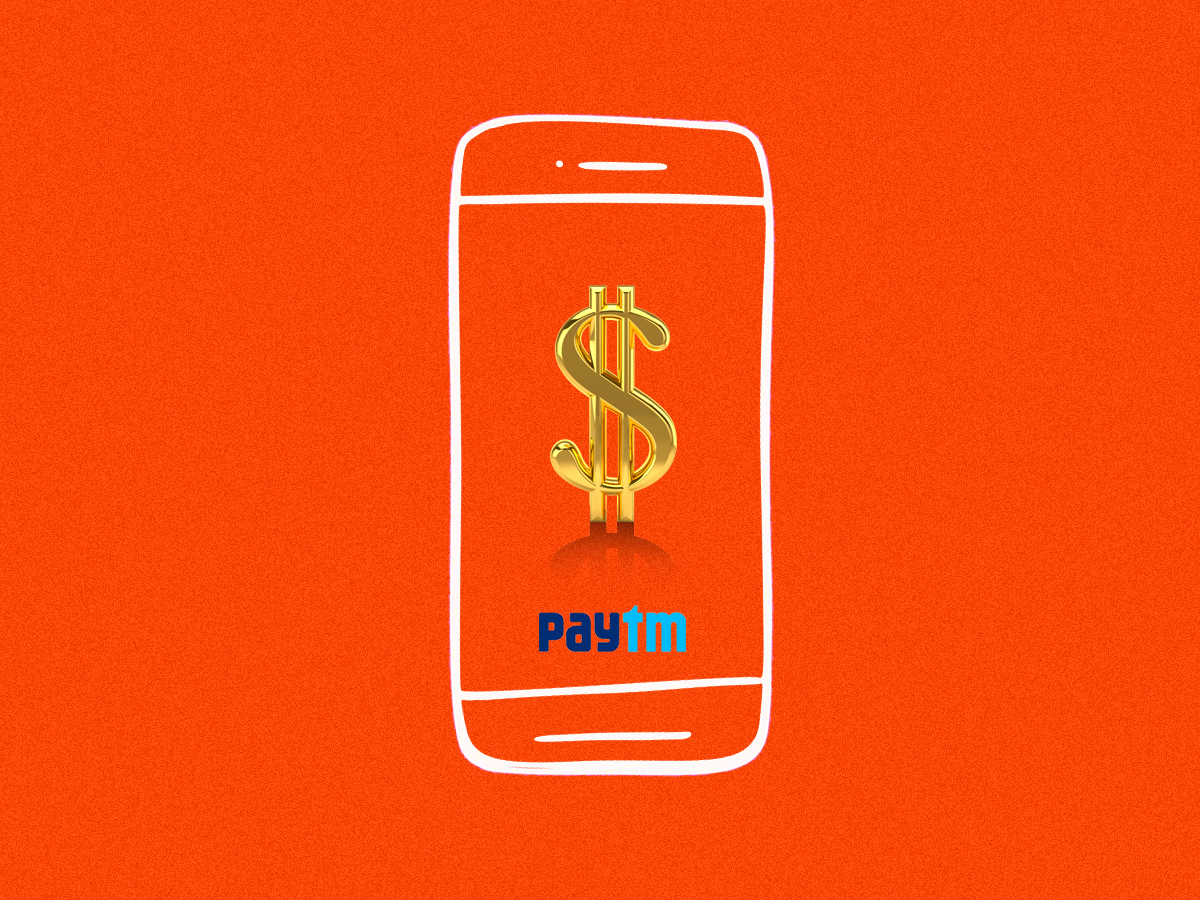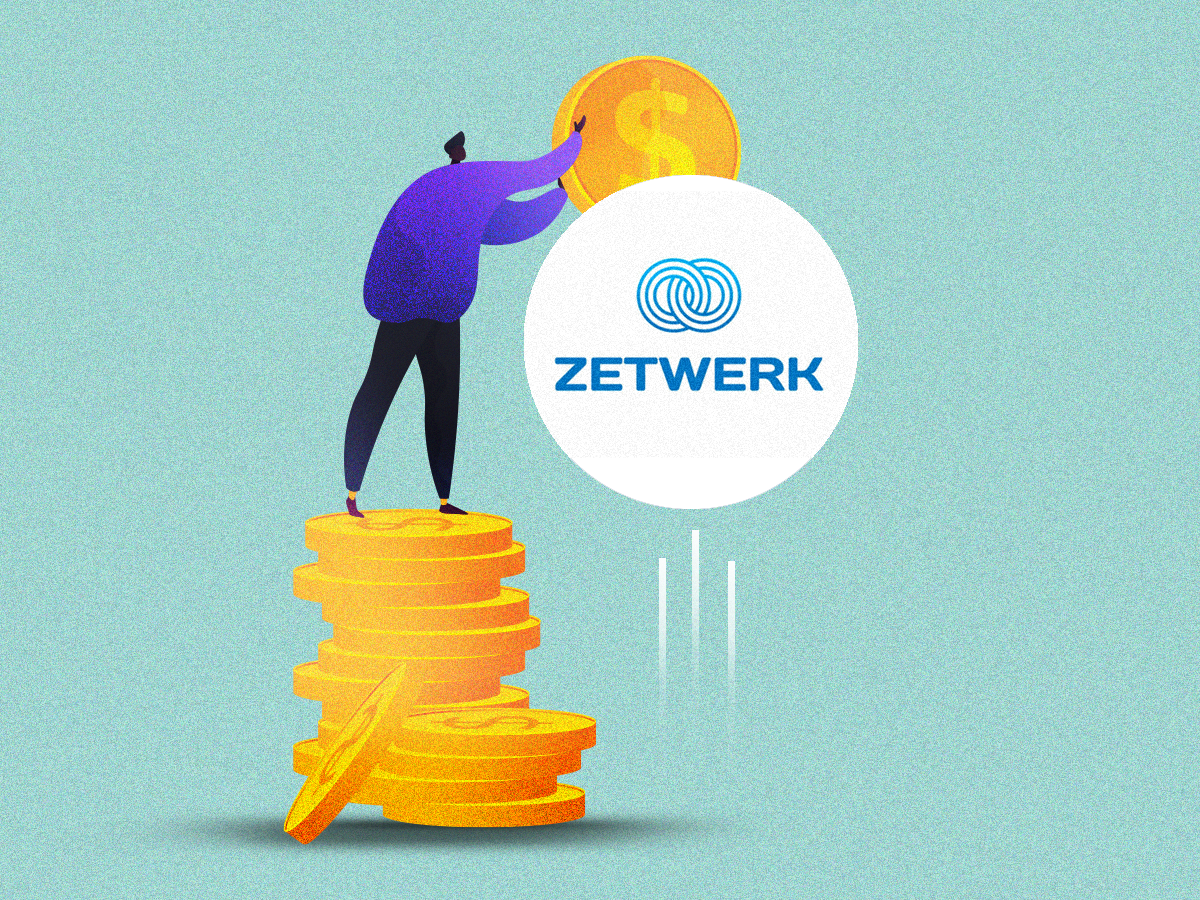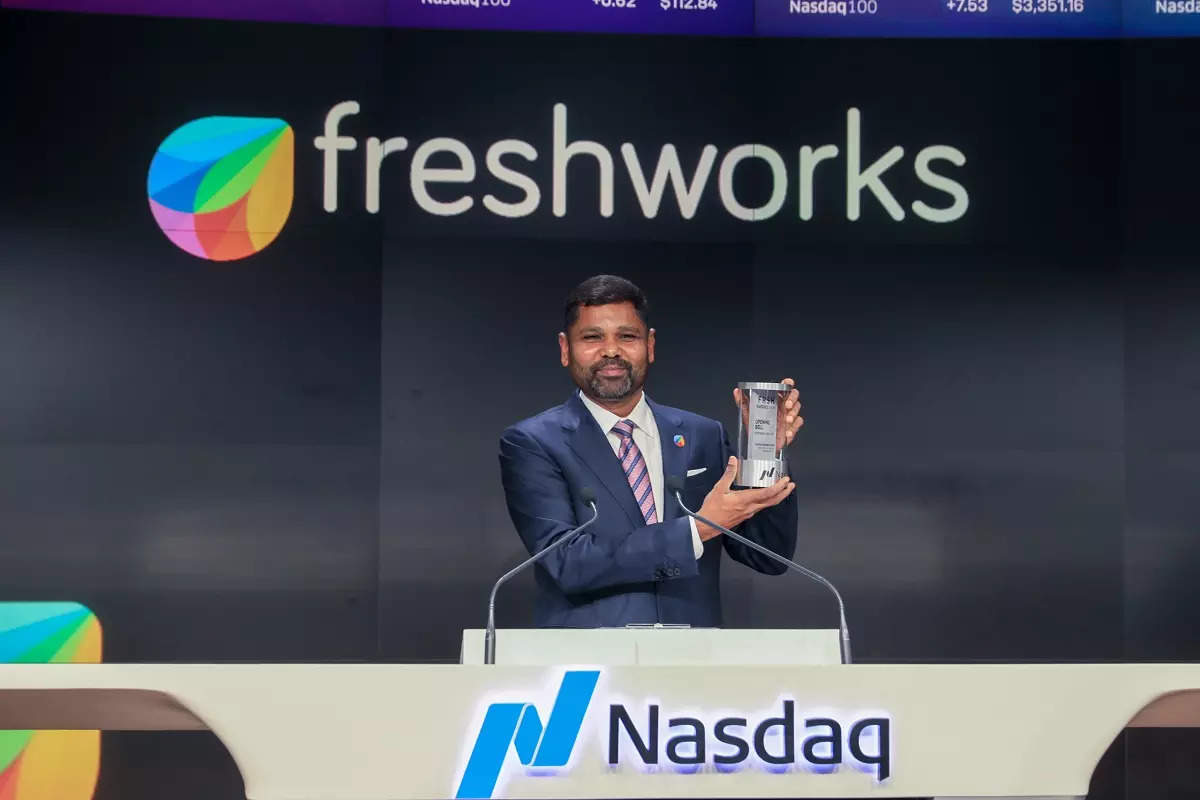Paytm’s giant anchor round; alarm over crypto ads
Also in this letter:
- Experts sound alarm on claims in some crypto ads
- Zetwerk set to raise funds at $2.5 billion valuation
- Clubhouse rolls out app in five Indian languages
Have a happy and safe Diwali! Morning Dispatch is on break for the rest of the week. We’ll be back in your inbox on Monday.
Paytm raises 45% of record IPO target from anchor investors

Paytm has raised close to Rs 8,235 crore from anchor investors as part of its Rs 18,300-crore initial public offering, the company said in filings with the BSE last night.
What’s an anchor investor? Typically, large investors who are allotted shares at a fixed price ahead of a public offering play the role of anchors, and are seen as indicators of the IPO’s popularity. The IPO — expected to be the largest ever in India — will open on November 8 and close on November 10.
Paytm’s anchor investors include sovereign wealth funds and financial investors such as Singapore’s GIC, Canada’s CPPIB, BlackRock, Alkeon Capital and Abu Dhabi Investment Authority. US hedge fund Janus Henderson, Fidelity, Standard Life Aberdeen and UBS also picked up shares in the anchor round, which was oversubscribed by around 10 times.
BlackRock, CPPIB and GIC are among the top investors in Paytm’s anchor round, having invested more than Rs 2,516 crore combined. With the close of the anchor investment, Paytm has now raised 45% of its total capital it intends to raise through the IPO.
IPO upgrade: Paytm, which had initially filed for a Rs 16,600-crore IPO in July, recently increased the offer size by Rs 1,700 crore. It has announced a price range of 2,080 to Rs 2,150 a share for the IPO, aiming for a valuation of $19.5-20 billion.
Financials: According to Paytm’s red herring prospectus (RHP), its operational revenue during the June quarter FY22 jumped more than 61% to Rs 890 crore, from Rs 551 crore in the same period a year ago.
During the same period, its losses were Rs 382 crore, compared to more than Rs 284 crore in the same period a year ago. Paytm’s revenue is being driven by payment and financial services, which now contribute around 77% of its total revenue, the filings showed.
Go fourth and conquer: Paytm’s IPO will be the fourth by an Indian tech startup and the third since October 28, when online beauty products retailer Nykaa launched its IPO. This was followed by a public offering by PB Fintech, the parent company of Policybazaar, from November 1 to 3.
Experts sound alarm on claims in some crypto ads

Financial and legal experts are sounding the alarm over some ads for crypto companies, saying their claims tread a thin line between exaggeration and outright misrepresentation. Unlike other financial products such as mutual funds, there are no formal guidelines governing the advertising of crypto in India. Top crypto exchanges have previously told us they adhere to a self-regulatory code of conduct that is on par with those for other financial instruments.
What they said: Sandeep Parekh, managing partner at Finsec Law Advisors, said, “Some puffery and exaggeration is okay [in crypto ads], but guaranteeing returns or comparing [crypto] with financial products such as fixed deposits is somewhat misleading,”
He was referring to an advertisement by crypto exchange Bitbns, which claims that its Bitcoin ‘fixed deposits’ yield four times the returns of regular FDs. The ad has been widely telecasted during the ongoing T20 World Cup.
“It is perhaps high time that regulators act against those who are indulging in misrepresentation. Some legislative clarity would also be helpful,” said Mathew Chacko, partner at Spice Route Legal.
‘Nothing misleading’: But a spokesperson for Bitbns told us in a statement on Wednesday that there is “nothing misleading” in its ad campaign. The company said its ad indicates that investors can earn up to four times more interest on Bitcoin FDs and not that it guarantees such returns.
Bitbns CEO Gaurav Dahake had earlier told us that investors are getting returns in “the same form factor” they are depositing, so the four-times claim is not misleading. However, Dahake admitted that the underlying volatility in crypto such as Bitcoin and Ethereum, and other altcoins, was not factored into the claim of up to 4x returns.
Exchanges on the offensive: For regulated financial products like mutual funds, the Securities and Exchange Board of India allows celebrity endorsements only at an industry level, and its prior approval is also required.
In the absence of formal governance, cryptocurrency exchanges are playing on the offensive with widespread advertisement campaigns — amped up during the ongoing T20 World Cup — on social media, streaming platforms and television.
- Crypto unicorn CoinSwitch Kuber recently signed up Bollywood star Ranveer Singh as its brand ambassador. Its user base has increased from 1.2 million in January to over 10 million, a 730% jump in the past 10 months.
- India’s other crypto unicorn CoinDCX recently onboarded Amitabh Bachchan. From 1.5 million users in May, it claims to have five million users as of October.
Global issue: Protecting investors in the $2.75-trillion global crypto market has emerged as a key concern among major economies around the world.
In the UK, a few crypto ads have been banned but the authorities are still struggling to rein in the larger ecosystem. The UK’s Financial Conduct Authority has asked for more power to rein in promoters of crypto ventures. In the US, Securities and Exchange Commission chairman Gary Gensler recently called on Congress to protect investors from crypto scams.
Tweet of the day
Zetwerk set to raise funds at $2.5 billion valuation

Zetwerk Manufacturing, a contract maker of consumer goods and capital goods, is finalising a $250-million funding round led by US-based Iconiq Capital and Greenoaks, sources told us.
Valuation jump: The round would value the company at close to $2.5 billion pre-money, almost double of what it commanded in August this year when it had raised $150 million from investors led by D1 Capital at a $1.33 billion valuation and joined the growing list of startup unicorns.
Quote: “The new funding round is a mix of primary as well as secondary capital where some of its existing investors and early backers will completely exit,” said a person with knowledge of the company’s plans.
What’s the plan? The company will use the funds for global expansion, including inorganic growth opportunities, said the sources cited above.
In August, Zetwerk had raised $150 million in its Series E round led by D1 Capital Partners and with participation from new investors Avenir and IIFL along with existing ones Greenoaks Capital, Lightspeed Venture Partners, Sequoia Capital and Accel.
Meanwhile, Faze Technologies, a platform for fans to collect, use, play and interact with cricket through nonfungible tokens, has raised $17.4 million in a seed-funding round, led by Tiger Global with participation from Coatue and Sequoia Capital India.
Clubhouse rolls out app in five Indian languages

Social audio app Clubhouse has launched its app in five Indian languages—Hindi, Tamil, Telugu, Kannada and Malayalam—as part of its localisation efforts in the country. We had reported its plan to do so on October 21.
Currently, the localised versions will be available only on the Android version of the app, with the iOS version expected to follow soon, the company said.
Quote: “This is a highly requested feature in India. This is just the beginning. India is a country of many languages and we will launch more language support in the upcoming weeks and months,” said Aarthi Ramamurthy, head of international, Clubhouse.
No language barrier: Speaking at the launch of the initiative, the Clubhouse management stated that it has launched 13 new non-English language formats including French, German, Indonesian, Italian, Japanese, Korean, Portuguese (Brazilian) and Spanish.
High interest: The company said that usage of the app has increased significantly since its launch in India, with over 700,000 daily discussion rooms available, up from 300,000 when it launched. The company did not share the number of users in India but said time spent per user has increased to 70 minutes.
On moderation: “When you are building a platform for creators, you have to recognise that there will be bad actors with clear guidelines, features for creators to manage their audience and bring more people on board to manage everything together. On the product side also we have added more features to flag content,” said Paul Davison, cofounder and chief executive at Clubhouse.
What is Clubhouse? It’s an app that allows people to join pop-up audio chat rooms that disappear when the discussions end. Launched around the start of the pandemic, it created a whole new category of audio-based social media and was seen as an antidote to fatigue brought on by constant exposure to video conferencing app Zoom. Following Clubhouse’s popularity, Twitter and Facebook also launched similar features on their apps.
Explained: How DeFi could one day liberate finance

Evolution is the answer to everything that exists, and finance is no exception.
Since the financial crisis of 2008, many practices of governments, central banks and entrenched players in the sector have been called into question. The birth of Bitcoin in 2009 gave the world — or at least a part of it — the tools needed to establish another kind of financial system, one based on decentralised consensus, not centralised fiat.
What is DeFi?
Decentralised finance, or DeFi for short, is a system in which customers can access financial products directly on a decentralised blockchain network, without the need for middlemen such as banks and brokerages.
The aim is to democratise finance by replacing centralised institutions such as banks with direct, peer-to-peer relationships. Every financial service we use today—savings, loans, insurance and much more—could one day exist on a blockchain, not in a bank.
That’s because decentralised finance platforms offer an alternative system, not simply a plug-in to the existing banking and finance systems. These platforms are structured to become independent from their developers and backers over time and to ultimately be governed by a community of users whose power comes from holding the protocol’s tokens.
According to a 2020 report in the Journal of Business Venturing Insights by Elsevier, “Blockchain technology can substantially increase the scope and efficiency of peer-to-peer transactions, turning previously infeasible business models into viable ones. Empowered by blockchain technology, financial services can become more decentralised, innovative, interoperable, borderless, and transparent.”
Tools of DeFi: smart contracts and dapps
‘Smart contracts’ are programmes that run on blockchains and can be triggered automatically when certain conditions are met. These smart contracts help developers build far more sophisticated functionality than merely sending and receiving cryptocurrency.
For example, a smart contract could be used to establish a loan agreement between two people. If certain terms are not met, the collateral could be liquidated. All of this would happen automatically through computer code, doing away with the need for a bank.
Smart contacts such as these are used to build decentralised apps, or dapps for short. Dapps are like normal apps and offer similar functions. The key difference is that they are run on a peer-to-peer network, such as a blockchain. That means no single entity has control of the network.
The risks of DeFi
Decentralised finance, like Bitcoin itself, is still at a nascent stage. The total value currently (as of November 3) locked in DeFi contracts worldwide is about $106 million, according to DeFi Pulse. Being a recent innovation, DeFi comes with its share of risks and downsides.
Click here to read the full explainer.
Freshworks beats Q3 estimates; Diwali bonanza for employees

Freshworks CEO Girish Mathrubootham
Freshworks saw its revenue surge by 46% to $96.6 million in the quarter that ended September compared to the same period last year, as the company announced its first quarterly result on Tuesday.
“We beat our earnings number (and) we beat our revenue number,” Freshworks CEO Girish Mathrubootham told us.
Quote: “Our net dollar retention, we thought, will actually come down from 118%. But there was strong expansion across our existing customers so we still had 117% net dollar retention. Overall, I think we’re pretty happy with the results of Q3 and also long term, if you look at the business itself, nothing has changed between the IPO and now,” Mathrubootham said.
The net dollar retention rate was 117%, compared to 118% in the second quarter of 2021 and 109% in the third quarter of 2020.
Bright future: He went on to add that the company has raised the forecast for the fourth quarter and for the year. Freshworks said it expects total revenue to rise to between $99-101 million for the fourth quarter and to around $364.5-366.5 million for the entire year.
Diwali bonanza for employees: Some employees will be able to sell shares of the company for the first time on Thursday. Mathrubootham said that the company had a price-based unlock criteria and looking at the price band, it has been set at 20%.
“It’s going to be a happy Diwali for our employees,” he said. “Employees and all our investors, VC investors except for the management team, or the affiliated parties, like board members, everybody else is unlocked to 20% of their vested holdings.
Other Top Stories By Our Reporters
PB Fintech IPO subscribed 16.59 times on Day 3: The initial public offering (IPO) of PB Fintech Ltd, which operates online insurance platform Policybazaar and financial services portal Paisabazaar, was subscribed 16.59 times on the third day of subscription on Wednesday.
TCS wins contract from Spain’s Royal Academy of Engineering: Tata Consultancy Services (TCS) has won a contract from the Royal Academy of Engineering of Spain to develop a new innovative digital framework that will provide online access to the latest learning support services and enhance collaboration between global educational professionals.
Global Picks We Are Reading
- Google News is returning to Spain after seven year fall-out (Bloomberg)
- ByteDance founder Zhang Yiming steps down as chairman (Reuters)
- Facebook working on ways to protect users in the ‘metaverse’: senior exec Nick Clegg (Reuters)
For all the latest Technology News Click Here

